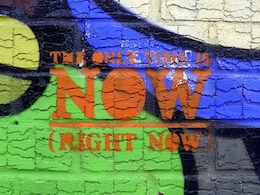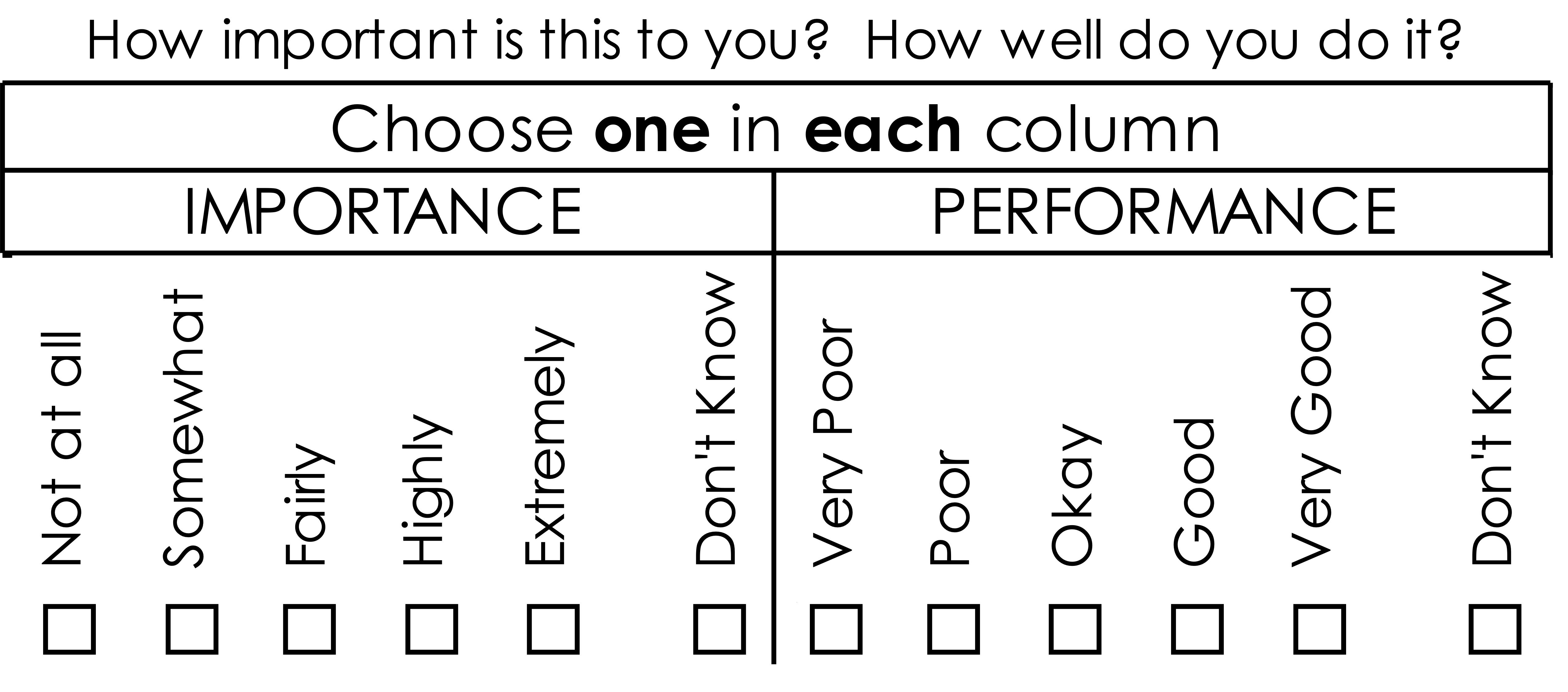Just Do It Now
- Home
- Basic Productivity Skills
- Just Do It Now
Why delay when you don't have to, just do it now. Get it done. Be finished with it.
There used to be a saying, “Why wait for spring, do it now.” Those who don’t procrastinate get more done with less stress and more satisfaction. Having a project hang over your head for extended periods of time can be painful.
Usually
there is one small (or large) piece to any project that we would love to avoid
having to do. It is a bottleneck, but it will have to be faced and done sooner
or later. Avoid the mental fatigue and get to it. Just do it now and get it behind you.
You will gain the satisfaction of completion and the rest of the project should
progress more smoothly.
Take the time now to identify bottlenecks to your moving forward. Decide to deal with them today. Find a way around it, through it, under it or over it, but get that tough stuff done and gain momentum.
"The potential of trying new things, reaching for more and suffering a setback or a rejection, is something that, ultimately, you can deal with, whereas the fear of that event is formless, elusive, and difficult to fight. Fighting fear is like trying to sack fog; you just can't get a handle on it."
Dr. Phil McGraw, Life Strategies
Just Do It Now with Five Days of Coaching

DAY ONE
Make a list of the tasks or projects you procrastinated on until it hurt. How might outcomes have been different if you had simply got to work? Is this a habit that needs radical reversal? Determine that if it needs doing and it's in your power to do it, it will be done now.
The Coach asks:
- If this is an area of challenge for you, you probably have several examples of your delay top of mind. Make a list of recent tasks that you have delayed on "until it hurt." You were under a time squeeze. Others were frustrated because they needed your input. Whatever it was, it "hurt."
- Thinking of the examples in the list you just made, what would have been different if your attitude and action would have been "just do it now?"
- On a scale of 1 - 10, 10 being "this is serious," how intentional do you need to be about turning this practice of "delay" into a practice of "done?" How will this affect your leadership or professionalism?
- I encourage you to make that shift in your thinking that will change the trajectory of your everyday productivity, collaboration, and satisfaction.
DAY TWO
Take something that has been hanging there unfinished, waiting for you, and just get it done. Do it today. Break through.
The Coach asks:
- Let's practice. Pick something that you have been procrastinating on and just do it now. Get it done.
- How satisfying was that? Did you pick a harder or easier task? Any thoughts on why you made that particular choice?
- What's next. Do it. Do a whole series of such tasks if you are able to fit them in right now. Otherwise, slot a time to get them brought to completion.
- What does this breakthrough of behavior teach you? How can you leverage it moving forward? How willing are you to do that?
DAY THREE
Resolve to be proactive and the kind of person that doesn't wait for others to act first. Become an action taker.
The Coach asks:
- When it comes to getting things done, what does it mean to you to be proactive? What does that look like?
- How will your team be affected by your being proactive? What gains will this allow you to make, that perhaps until now were hampered by your delays?
- How are you beginning to see yourself? What's still left to be intentional about applying? Do it.
DAY FOUR
Today, learn to recognize bottlenecks. Being able to accurately identify a bottleneck and put a name to it is half the battle towards getting it done. If you can name it, you can do something about it. What are your bottlenecks? Your organization's bottlenecks?
The Coach asks:
- Take a look at recent delays; not delays because of some external thing, but delays because of your procrastination. As you think about each one, identify what the real bottleneck or constraint was. Name each bottleneck accurately.
- What commonalities did you find in bottlenecks that tended to cause you to not want to continue and therefore create delay in getting it done?
- For each bottleneck, identify what was most important in finally executing on the task. Was it your attitude? Something structural? Having to deal with a certain person? Something about timing?
- What have you learned about identifying bottlenecks and creating an environment that facilitates you "getting it done?"
DAY FIVE
Deal with bottlenecks. Be conscious of your own resistance to action. Find a way around it, through it or over it but determine to get on the other side of it today. Don't stop until you're finished.
The Coach asks:
- Don't let anything stop you in bringing small, medium or larger tasks to a conclusion. Just do it now. Create an environment for success. Rid yourself of any barriers to action. And, keep going until these "five days" turn into a whole month, and three months etc. Keep going until your time here becomes a well established, proactive, way of working and leading.
Diligent Hands Bring Wealth

As a Christian Executive Leadership Coach I encourage Christian leaders to reflect on God's Word to add to their wisdom. Since Proverbs says a lot about diligence and getting things done, let's park with these verses.
- Pr 6:6-8 Go to the ant, you sluggard; consider its ways and be wise! It has no commander, no overseer or ruler, yet it stores its provisions in summer and gathers its food at harvest.
- Pr 10:4 Lazy hands make for poverty, but diligent hands bring wealth.
- Pr 12:24 Diligent hands will rule, but laziness ends in forced labor.
- Pr 13:4 A sluggard's appetite is never filled, but the desires of the diligent are fully satisfied.
- Pr 14:23 All hard work brings profit, but mere talk leads only to poverty.
- Pr 15:19 The way of the sluggard is blocked with thorns, but the path of the upright is a highway.
If you are a leader, executive, or senior level professional looking to work with a Christian Executive Coach, I invite you to connect with me here.
If appropriate, we can meet by phone or Zoom to discuss your situation.
Record Your Progress
This is your opportunity to track your progress. Start by asking yourself how important this practice is to you? Record the importance as - not at all, somewhat, fairly, highly or extremely.
Now next to it ask yourself how well you carry out this practice. Record your performance as - very poor, poor, okay, good or very good.

The things we track, we pay attention to. Across time, come back and record your new results. You will find that as you are intentional about making improvements, you will bump your "score" up higher.
This is significant. Don't miss the opportunity to acknowledge your success, and use it as a springboard for making even further gain.
Notes
You know those days when everything is clicking and you're crossing all sorts of things off your to-do list. Satisfying isn't it. What a sense of accomplishment.
Generally you find when that happens that you haven't been paying much attention to time or given too much thought (other than prioritizing) to what's on the list.
You basically followed a thought in your head that said ... just do it now. You got at it. Let's make more days like that. As leaders we'll achieve so much more.
Contact me here Privacy Policy
© G.E.Wood and Associates. All Rights Reserved in all media.
G.E. Wood and Associates is an international coaching firm registered in Ontario, Canada
142 Pratt Crescent, Gravenhurst, Ontario, Canada, P1P 1P5